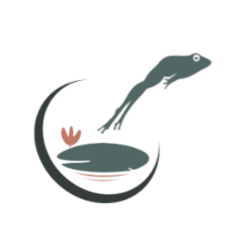The Case for Community
Understanding Co-Regulation: The Invisible Thread of Emotional Support
Community is a woven part of our culture. We have adapted and changed over time; however, the need for community has stayed the same, especially in spaces that promote healing and wellness. Look at sober support meetings, for example- it’s a group of folks sitting around, drinking coffee, talking about a similar issue or need. There often isn’t anything deeply profound being said, yet the magic is seated in a group of people with similar life experiences being seen, heard, and understood. You aren’t being judged for being “bad”, “weird”, and more importantly, you are not alone. No one is overtly fixing your issue- rather, they are saying I will sit in the discomfort with you. Look at the inverse, in the beginning days of the pandemic, when social distancing was at play, the rate of increased substance use disorders, reported domestic violence and crime skyrocketed. There is science behind the idea of needing others.
Let's start with co-regulation, a term that might sound technical but describes something deeply human. In essence, co-regulation is the mutual process by which we influence and stabilize each other's emotional states through interaction. Think of it as an emotional dance: when one person is overwhelmed, the other provides calming cues— a reassuring touch, a listening ear, or even shared laughter—that help bring balance. This isn't just feel-good psychology; it's rooted in neuroscience. Our nervous systems are designed to "sync up" with others, activating the parasympathetic response that calms fight-or-flight instincts. Think about it- if you're in a stadium at a football game and everyone is yelling, do you find it easier to get caught up in the excitement? Or the opposite if you are in a quiet room, you notice you are quieter and more reverent?
In my practice, I often explain co-regulation using the parent-child dynamic, as it's one of the earliest examples we experience. A crying infant doesn't self-soothe alone; they rely on a caregiver's gentle rocking and soothing voice to regulate their distress. Over time, this teaches the child internal self-regulation skills. But here's the key: adults need this too. We don't outgrow our need for emotional attunement. Without it, stress hormones like cortisol can spike unchecked, leading to chronic issues like insomnia or relational conflicts. Community support amplifies co-regulation on a larger scale, creating a web of connections where we can all lean on each other to navigate life's ups and downs. It can be so easy in our current society to isolate and fall into patterns that start to break this thread. It is important to stay connected. Think about who you are currently co-regulating with and what athey arebringing out in you? How would you like to foster more cco-regulationwith?
